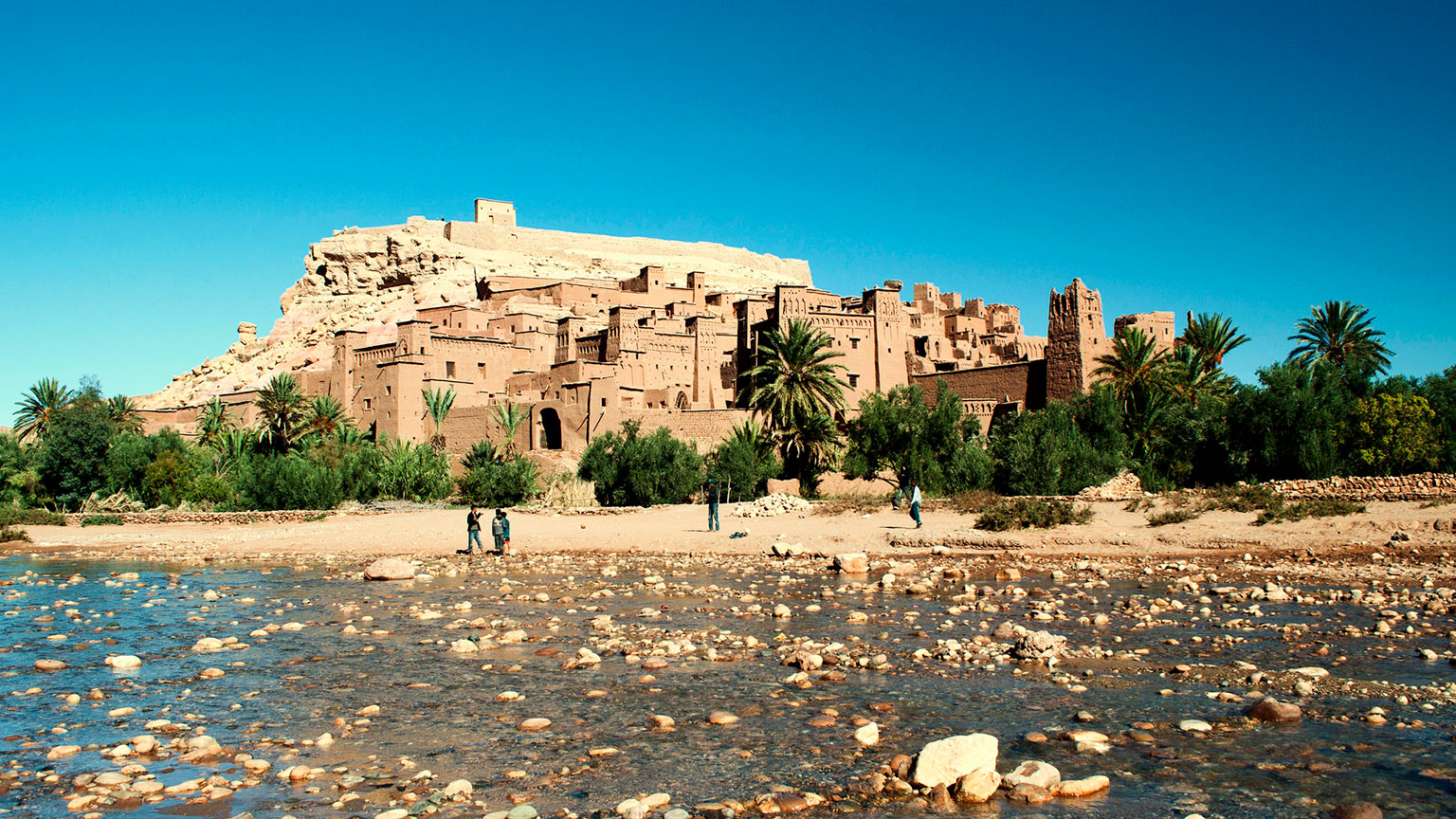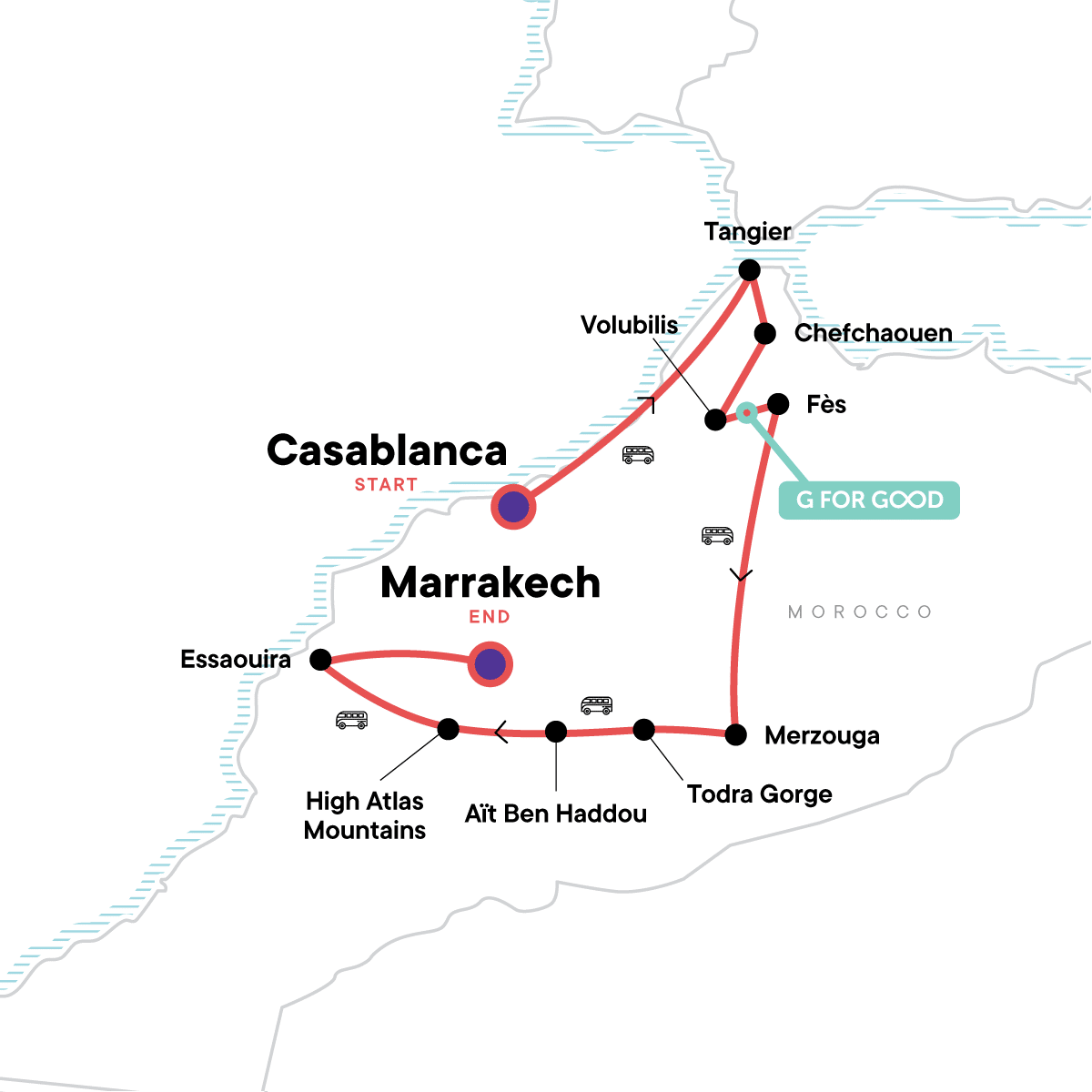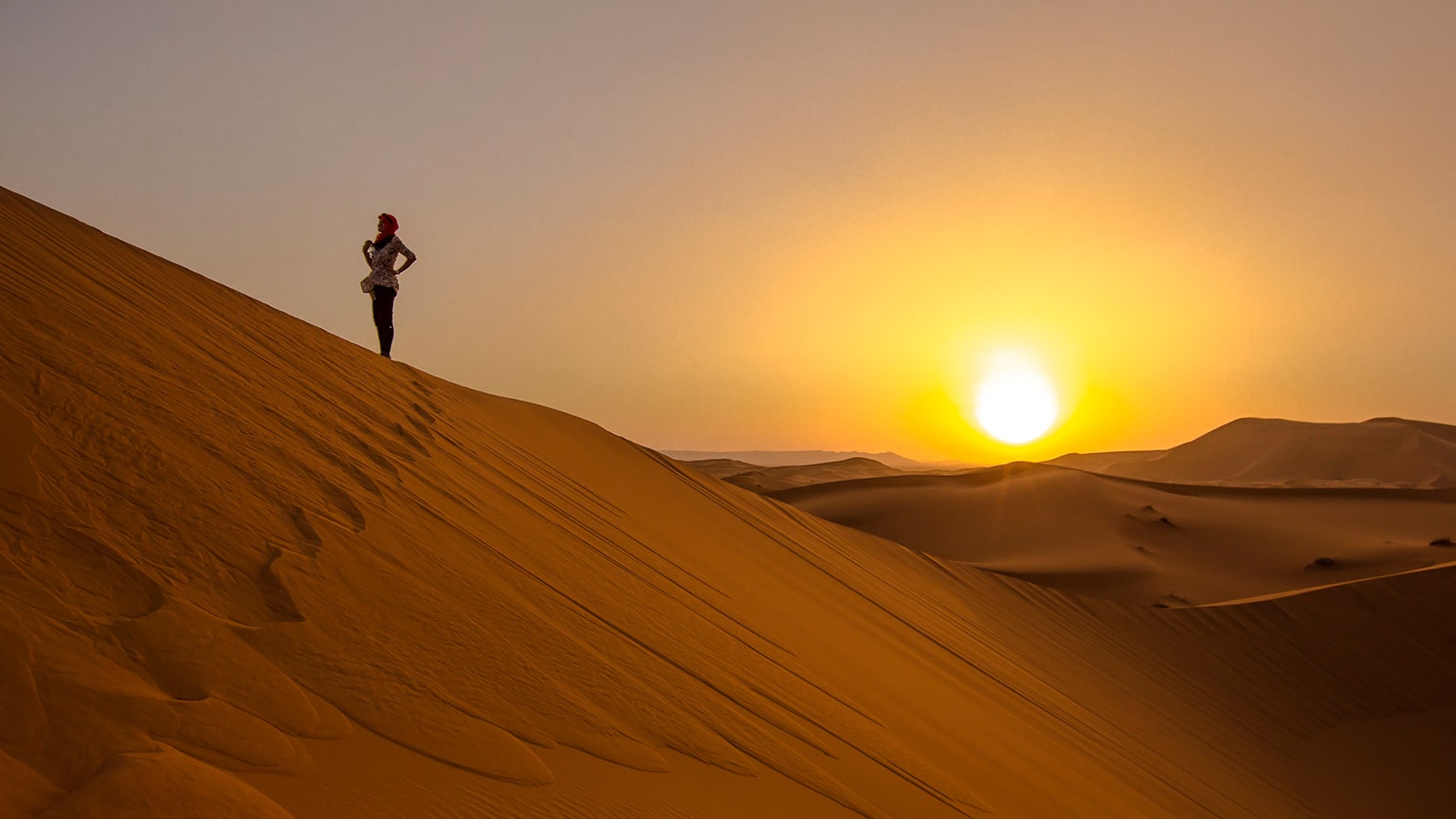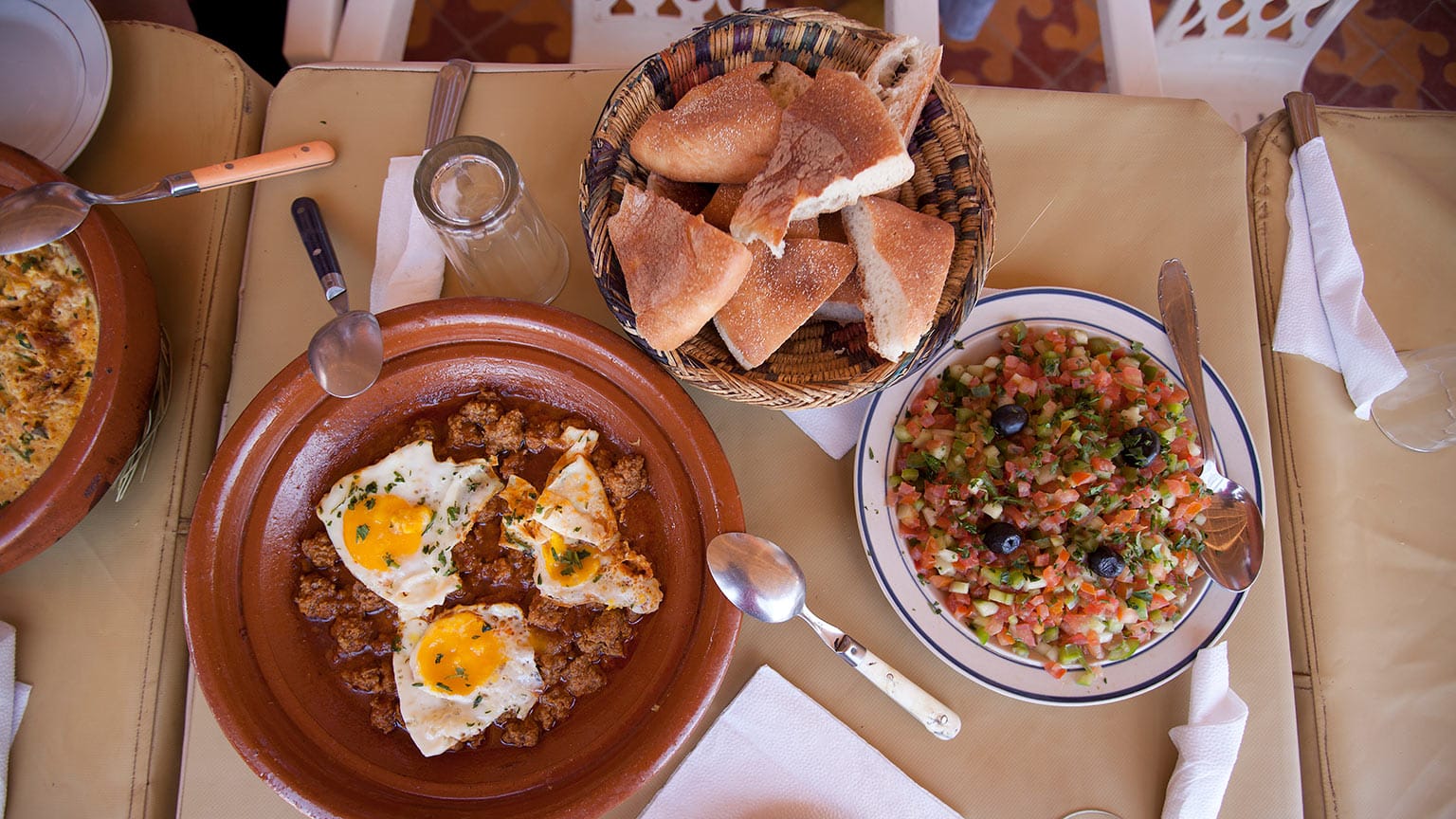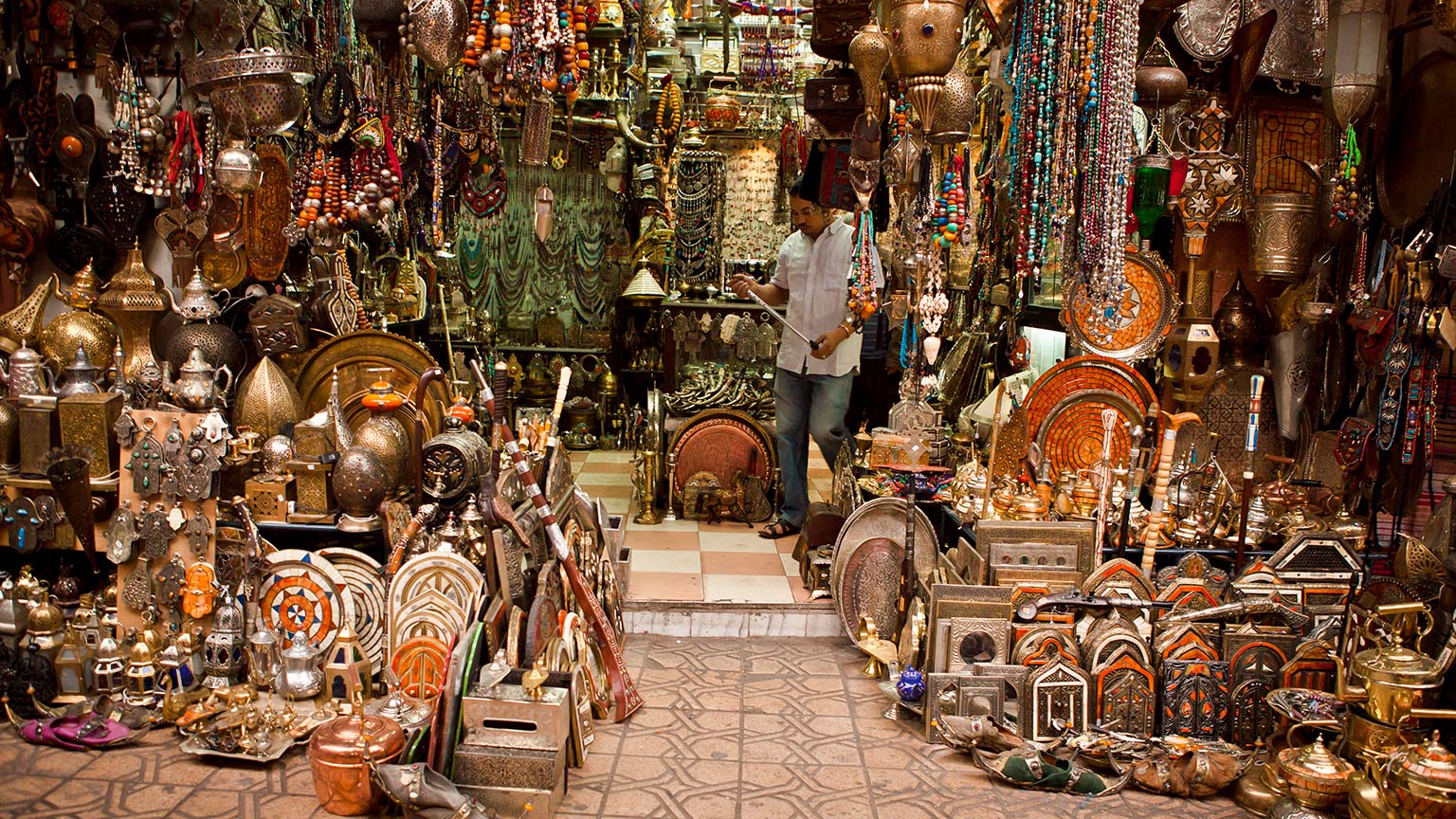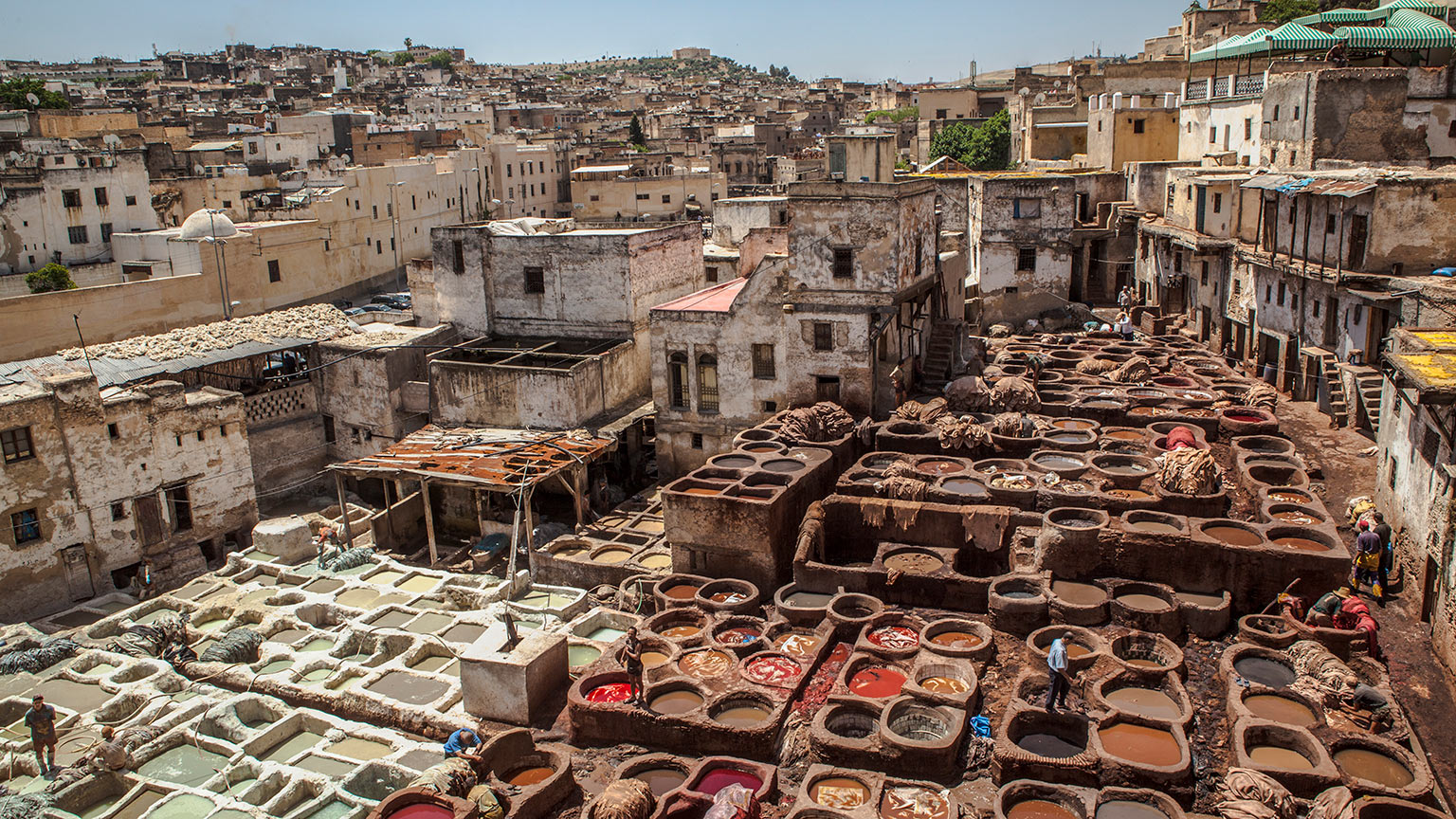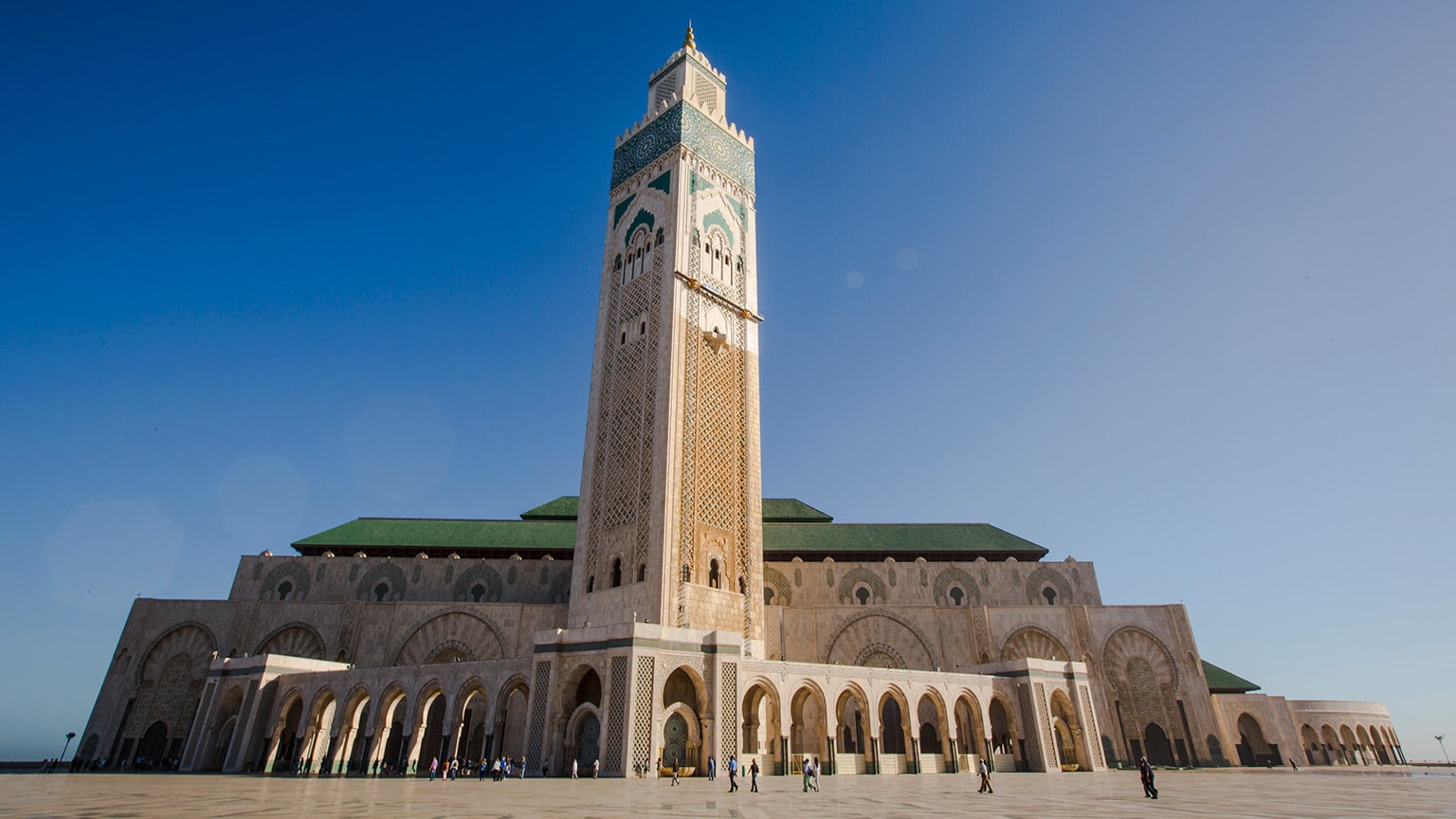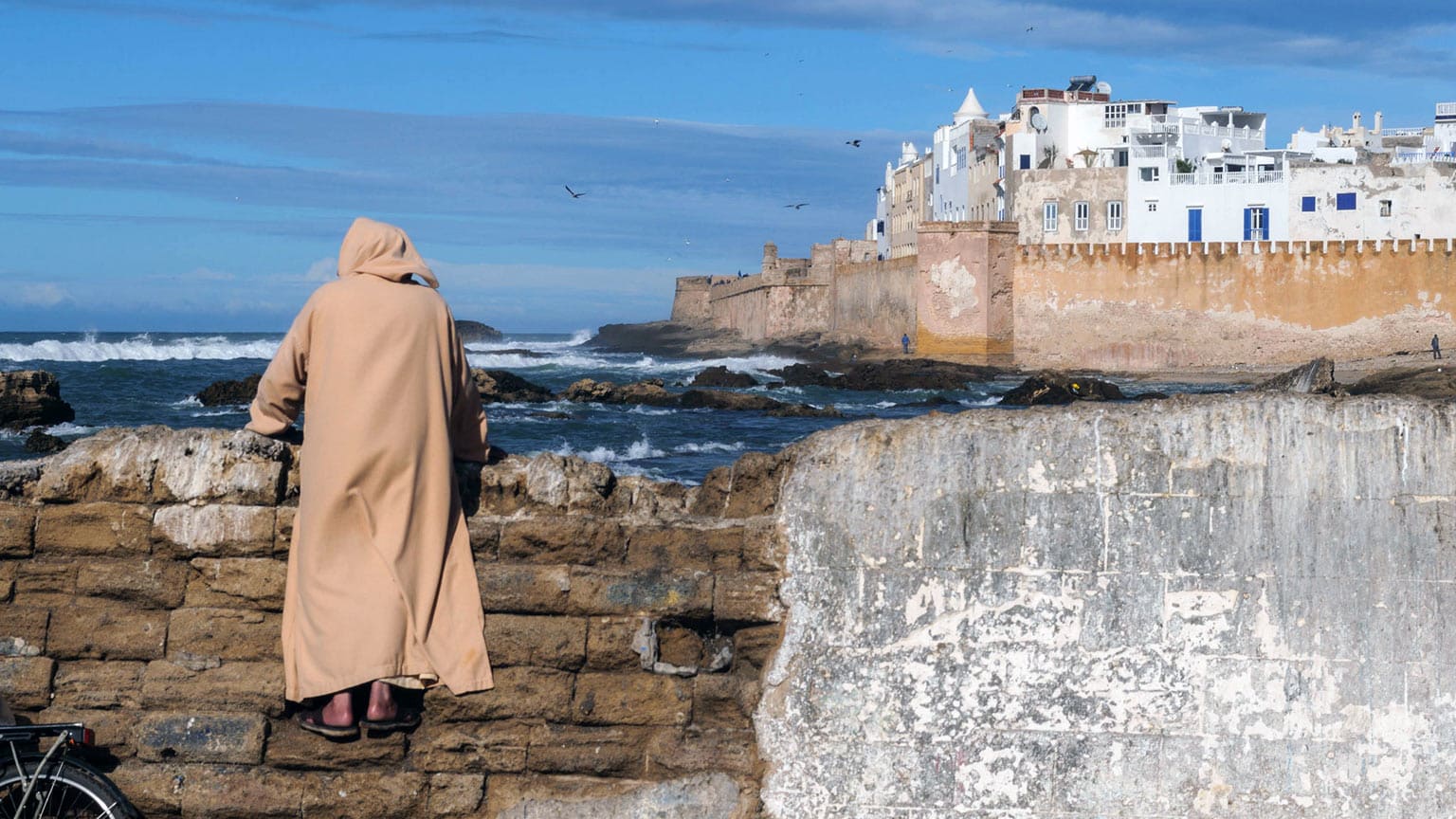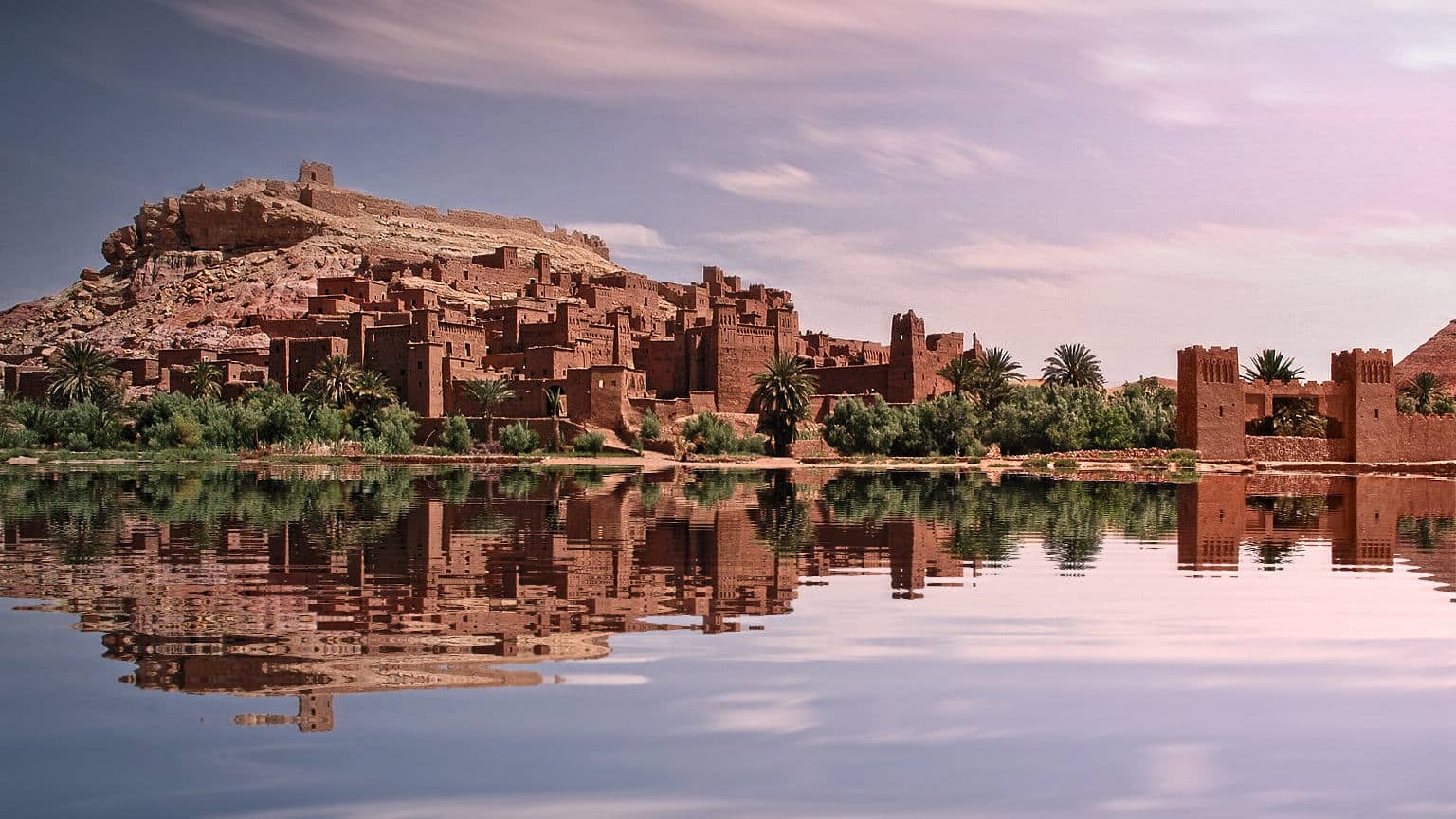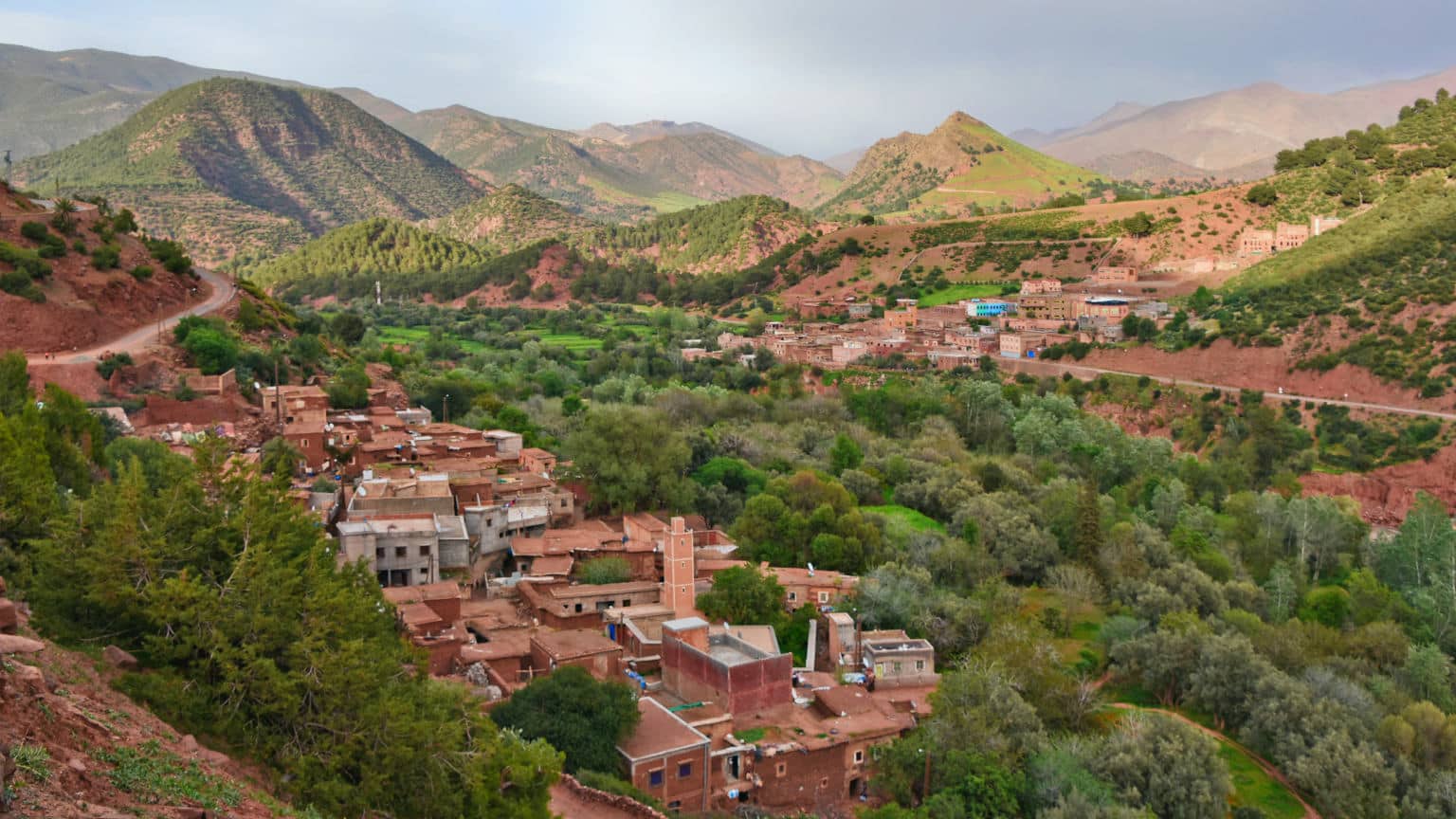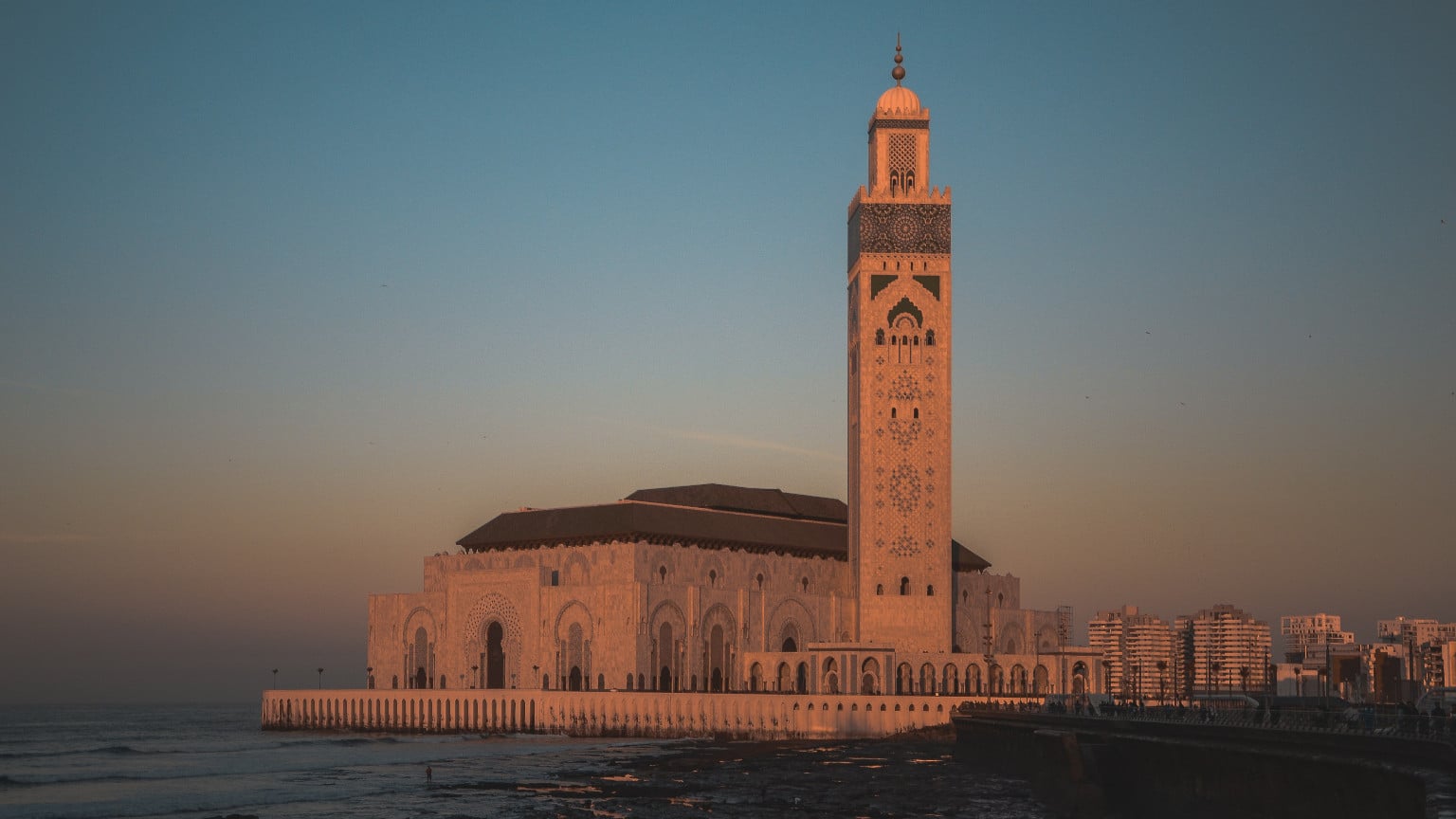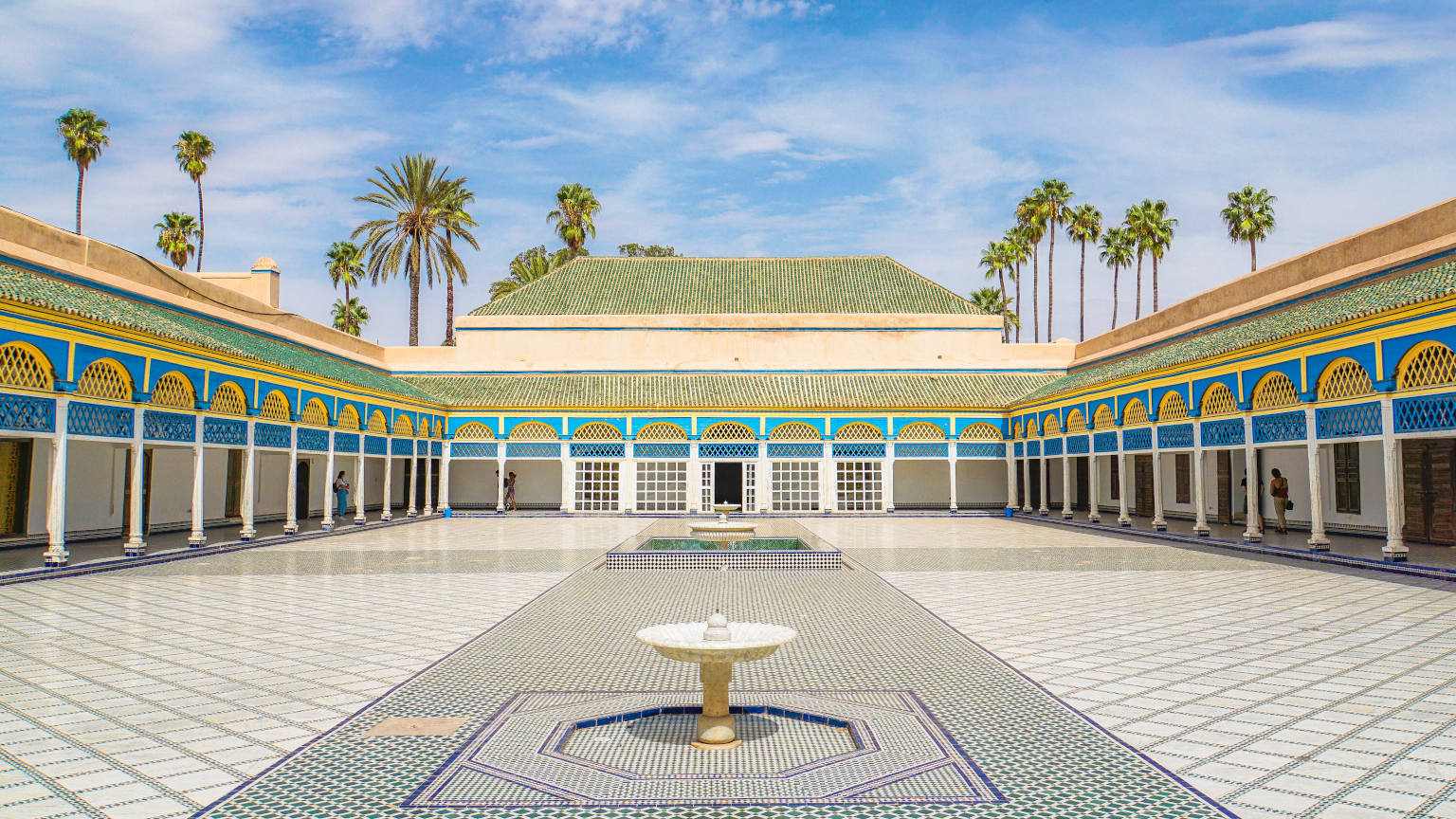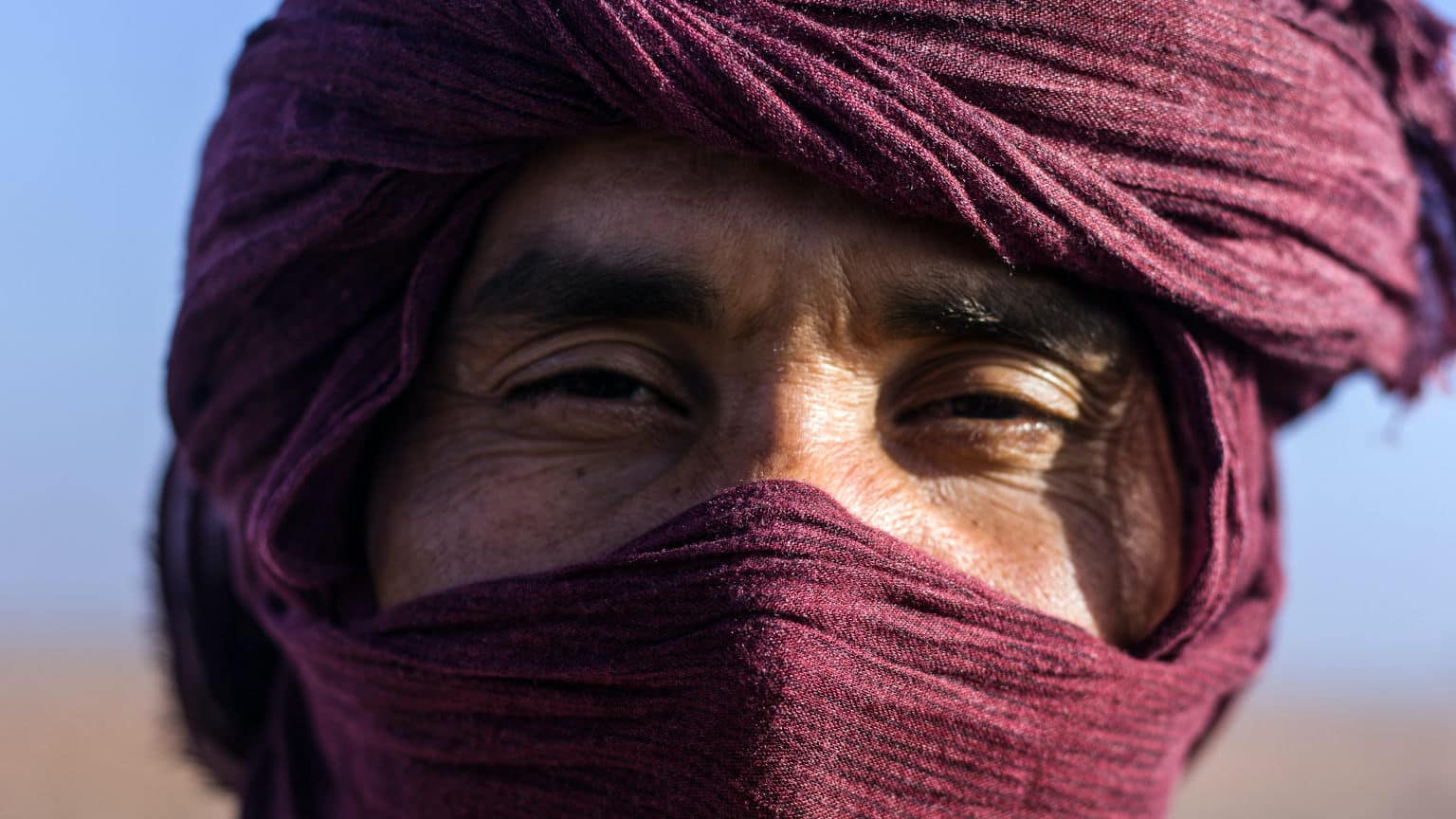Details
Frequently Asked Questions
Please read our general
FAQs, where you can find essential information that applies to all of our programs.
Resources to Learn & Teach about Morocco
Visit our
recommended reading page to see the list of books GEEO recommends reading before your program (this is not required reading). We also have
lesson plans and
Pinterest boards that may be useful for you as you learn about your destination and prepare to bring lessons back to your classroom.
Terms and Conditions
It is very important for you to visit our
Terms and Conditions page before signing up for this program.
GEEO Program Confirmation Process
Most GEEO programs are officially confirmed to run once 4 participants have registered. If at least 8 people sign up by our designated deadline, the program will run as a private GEEO trip. Should enrollment fall between 4 and 8, the trip will still take place, but it may transition into a
shared departure with our partner tour operator, G Adventures. In this scenario, the itinerary, dates, and pricing for those who have already registered will remain unchanged, although additional travelers from outside GEEO may join the trip.A large majority of GEEO programs remain private for just educators, retired educators, and their guests. We encourage you to sign up for any program that interests you, and we’ll keep you updated throughout the process—first when 4 participants have registered and again once 8 people have signed up. As always, we recommend exercising caution when making non-refundable travel arrangements (for example, booking flights with flexible change or cancellation policies) until your program is confirmed to run.
Cancellation Policy
All cancellations must be submitted to GEEO in written form by emailing your request for cancellation to
travel@geeo.org. If you do not receive a confirmation that we have received your written cancellation request, please call us at +1 347-433-6674. Verbal cancellation requests will not be honored.
- If you cancel 60 days or more prior to the start of your program, all payments will be refunded excluding your $350 deposit, which is kept on file for future use and never expires. (Exception for participants who receive grants from our university partners: To address disruption caused by cancellation from grant recipients, deposits paid by grant recipients are forfeited upon cancellation.)
- If you cancel between 30 and 59 days prior to the start of your program, you will receive a 50% refund and your deposit will be kept on file for future use and will never expire.
- If you cancel within 30 days prior to the start of your program, you will receive no refund, but your deposit will be kept on file for future use and will never expire.
Trip Notes & Expectations
Before you decide to travel to Morocco with GEEO, it is important that you read all of the information about the program contained on this page. Our programs are quite adventurous, and we find that clients who read the trip details in full are happier with their experiences.
- PACE: This itinerary is fast-paced and covers considerable ground in a limited time. Expect early starts, long drives in a sprinter van, and less free time than other GEEO programs. Being prepared for this pace will help you fully appreciate the diverse locations we visit.
- ACCOMMODATIONS: Our program fees are based on double-occupancy accommodation (see "Single Travelers" below if you do not have a travel companion and would be interested in a private room). This program features tourist-class hotels, similar to motels, providing basic amenities to ensure a safe and pleasant stay. Please be aware that not all locations offer air conditioning. In some of the charming, older renovated accommodations, you might encounter limited hot water or slower-draining showers. In rural areas, accommodations made from traditional materials like adobe may carry a distinct, earthy scent. We advise being prepared for these variations to fully appreciate the unique settings. Should you face any issues with hot water, electricity, air conditioning, or odors, please contact reception to request a different room.
- TRANSPORT: We use a 16-seater sprinter van for this tour. With a full group, every seat will be used. The legroom in the van is likely smaller than you may be used to, and taller passengers may find the space a little constricting. It is important to be aware that as it is not a legal requirement in buses in Morocco: your vehicle may not be equipped with seat belts. While the vans have air conditioning, summer temperatures in Morocco can easily reach over 100 degrees Fahrenheit. As such, when the outside temperature is very hot, the air conditioning system will not be able to cool the vehicle to the temperatures you may be used to enjoying at home.
- ACTIVITY LEVEL & PACE: This trip involves a significant amount of walking; the itinerary is active but not overly strenuous. Daily activities may include around 10,000 steps and often take place on uneven surfaces such as cobblestones, gravel paths, sand, and stairs. We move at a fast pace with early mornings, long drives, and limited free time compared to other GEEO programs. The most physically demanding activities are the optional hike in the Rif Mountains (Day 3) and a trek to the mountain gîte in Aroumd (Day 10). A taxi is available for those who prefer not to walk to Aroumd. Camel riding is slower-paced but requires the ability to mount and dismount. If traveling in summer, expect very high temperatures—staying hydrated and using a handheld fan or wet towel can help manage the heat.
- CAMEL RIDE: Participation in the camel ride is optional. If you prefer not to ride, you are welcome to relax at the hotel or explore the nearby sand dunes. Please note that the sunset viewing point, located in the middle of the dunes, is not accessible by 4WD/vehicle. Walking is possible, but can be hot and physically demanding.
- DRESS: In rural areas of Morocco, it is advisable for women to dress modestly by covering their shoulders and knees. In major cities like Fes, the Sahara, and Marrakech, you have more flexibility in how you dress. However, wearing less revealing clothing can help minimize unwanted attention.
- LUGGAGE: We recommend bringing a small to medium-sized bag (22-30 lbs) and a daypack. While larger bags may help with souvenirs, space is limited, so make sure that you can easily walk with, maneuver and carry your own luggage.
- RESTROOMS: In Morocco, access to public restrooms often requires a small fee, usually 1 or 2 Dirhams. We recommend keeping some small change handy. You’ll have opportunities to visit banks or ATMs early in the trip and regularly thereafter to ensure you can break larger bills into smaller denominations. While public bathrooms are normally quite clean, they may not always have toilet paper, so it's best to carry some with you.
- GETTING HOME: This program ends in Marrakech. Most international flights depart out of Casablanca. Make sure that you arrange your flights correctly. Keep in mind there are flights from Marrakech to Casablanca as well as a train that runs a few times a day and takes 3.5 hours.
- GROUP LEADER: Please make sure you understand the role of your tour leader on this trip. All GEEO/G Adventures group trips are accompanied by one of G Adventure's group leaders, which they refer to as Chief Experience Officers (CEO). The aim of the group leader is to take the hassle out of your travels and to help you have the best trip possible. They will provide information on the places you are traveling through, offer suggestions for things to do and see, recommend great local eating venues, and introduce you to our local friends. Our itineraries often have plenty of free time to explore on your own. While not being guides in the traditional sense, you can expect them to have a broad general knowledge of the countries visited on the trip, including historical, cultural, religious, and social aspects. We also use local guides where we think more specific knowledge will add to the enjoyment of the places we are visiting – we think it’s the best of both worlds.
Single Travelers
Half of GEEO’s participants travel by themselves, so please don’t worry if you do not have a travel companion for your trip. Our program fee is for one traveler in double-occupancy accommodation, and GEEO can find you a roommate of the same gender if you do not have a travel companion. Most of our programs have a “My Own Room” option, also known as a “Single Supplement,” which is an extra fee that you can pay to have a room to yourself. You will only incur an additional charge if you specifically request a single room. To see the price for the “My Own Room” option, please find your program on our
extra services page. If you want to room alone, please email
travel@geeo.org to request a single room.
Please note that if you book the "My Own Room" option for this program, you will receive your own single accommodation for all nights except for night 10 (mountain gîte).
Emergency Contacts
Should you need to contact G Adventures during a situation of dire need, it is best to first call their local G Adventures office. If for any reason you do not receive an immediate answer, please leave a detailed message and contact information so they may return your call and assist you as soon as possible.
G Adventures Operator – Morocco
Open 5 days a week, Monday to Friday 9:00 a.m. to 5:30 p.m. local time (GMT).
During Office hours: +212 (0)528 824898
After hours emergency number: +212 (0)661 861950
If you are unable to reach anyone at either of these numbers, please call the G Adventures Regional Operations Manager Emergency Cell Phone: +44 (1858) 378000
If you are unable for any reason to contact the local office, please call the numbers listed below, which will connect you directly with the 24-hour Sales team, who will happily assist you.
Toll-free, North America only: 1 888 800 4100
Calls from UK: 0344 272 0000
Calls from Germany: 0800 365 1000
Calls from Australia: 1 300 796 618
Calls from New Zealand: 0800 333 307
Outside North America, Australia, New Zealand, Germany and the UK: +1 416 260 0999
Packing List
Please read
this article on GEEO’s blog for our staff’s suggestions on the best gear to pack for your upcoming travels. You must be prepared to carry your own bags and be comfortable carrying them up and downstairs, on and off transportation, and to hotels. As a rule, we try not to have to walk more than 15-20 minutes with your bags, which is why we recommend keeping the weight of your bags between 22-30 lb. Most travelers carry a backpack or rolling bag of small to medium size. No XXL bags please! A daypack is also essential for carrying everyday items. Space is limited on transportation, so there is a limit of one main piece of luggage per person plus a daypack per person.
Suggested (click to expand)
- Long-sleeved shirt and pants (for certain mosques and your flights, which can be cold)
- Sun hat
- Personal clothing for mild to hot weather (t-shirts, shorts, etc.)
- Daypack
- Sturdy, comfortable walking shoes
- Sport sandals or flip-flops
- Sunblock
- Sunglasses
- Watch or alarm clock (or use your phone)
- Toiletries – some hotels may not have shampoo and conditioner
- Towel for gîte in Aroumd
- Camera (or use your phone)
- First-aid kit (should contain lip salve, Aspirin, bandaids, anti-histamine, Dramamine, Imodium or similar tablets for mild cases of diarrhea, electrolyte powder, insect repellent, extra prescription drugs you may be taking)
Optional (click to expand)
- Light weight silk sleep sheet/blanket (for mountain gîte)
- Swim suit (Some hotels have pools)
- Travel pillow
- Money belt
- Water bottle
- Phone/tablet for internet – most hotels have WiFi
- eSIM or data plan to stay connected (e.g., Airalo)
- Chargers for electronics, as well as converters/adapters, if needed
- AirTags or Tile trackers
- Packing cubes
- Earplugs
- Snacks – packing a few granola bars is a good idea; you can buy snacks when you get there too, so don’t go crazy here
- Ziplock bags
- Reading/writing material
- Hand sanitizer/baby wipes
Documents (click to expand)
- Passport (with photocopies)
- Travel insurance (with photocopies)
- Airline tickets (with photocopies)
- EUR/USD cash
- Credit or debit card (see personal spending money)
- G Adventures vouchers, pre-departure information, and dossier
- Any entry visas or vaccination certificates required
- GEEO Classroom action plans for your group – this is sent 10-30 days before departure
Laundry
Laundry facilities are offered at some of our hotels for a charge, or ask your group leader where the nearest laundromat is located. In Fez (Day 4) you can drop your laundry off at a facility and pick it up the next day for approximately 50 dirham ($5 USD) per kilo with a $5 minimum. If you want to do your own laundry (which is very doable!), we suggest you bring your own non-polluting/biodegradable soap. Many of the hikes take place during the hottest part of the day, so re-wearing clothes without laundering them may not be an option. Clothes dry very quickly in the dry, hot temperatures of the Moroccan summer. Be sure to bring enough clothes to last a week without being able to do laundry.
Passports and Visas
All GEEO trips require that the participant have a valid passport. Please see our general
FAQ for information on obtaining a passport. As with all of our trips, we try to provide the most accurate information we can, but governments sometimes change visa rules. It is your responsibility to double check the information we provide below by searching
the U.S. State Department's International Travel Guidance.
PASSPORT
Your passport must be valid for at least six months beyond your intended departure date from Morocco.
VISA
U.S. citizens do not need a visa to travel to Morocco for stays of up to 90 days. Non-American participants should check with their government to find out if they need a visa.
Money Exchange
The local currency in Morocco is the Moroccan Dirham (MAD). As exchange rates fluctuate, refer to www.xe.com for current rates.
We recommend relying on a mix of cash, cards, and local currency. Euros and U.S. dollars are the most commonly exchanged foreign currencies. Carry some USD/EUR in small, clean, recently issued bills for exchanging into MAD, or in case of credit/debit card issues. The amount you bring will depend on your personal spending habits, but many travelers find that
bringing $300–500 USD (or the equivalent in Euros) to exchange is a reasonable estimate.
Visa is the most widely accepted credit card, and
debit cards with Cirrus or Plus logos are generally usable at ATMs.
While some restaurants, shops, and hotels accept cards, cash is more reliable, especially for small purchases, tips, and markets. Foreign transaction fees may apply, so check with your bank in advance. Plan to withdraw or exchange money early in the trip as it may be harder to access exchanges later in the itinerary.
Emergency Fund: Please also have access to at least
an additional $200 USD (or equivalent) as an emergency fund. This would be used only in rare situations—such as natural disasters or major transportation disruptions—that require unplanned changes to the itinerary. While uncommon, it is a responsible precaution to have these funds available.
You can read more GEEO advice in our post,
Smart Travel Finances: Your Guide to Money, ATMs, Fees, and Safety Abroad
Tipping
Morocco has a strong tipping culture. Tipping is an expected, though not compulsory, component of this program and an expression of satisfaction with the people who assist you on your trip. It is also one of the most direct ways you can have a positive economic impact within the local community. Although it may not be customary to you, it is of considerable significance to the people who will take care of you during your travels. Here are some guidelines for tipping:
- Tipping Kitty: Your tour leader will likely collect a tipping kitty at the welcome meeting to cover group tips for local drivers, guides, and support staff. This helps streamline tipping throughout the trip and avoids repeated small collections. The amount is typically the equivalent of $30–40 USD per person, payable in MAD or USD. Your tour leader will confirm the exact amount and how it will be used.
- General Tipping: For service providers such as waiters, tipping around 10% is customary, depending on the service.
- Local Guides: You may tip your local guides individually, or your tour leader may offer to collect money and tip on behalf of the group. Recommended tipping ranges from $1–2 USD per person per day, depending on the quality and length of service.
- Main Driver: Your main driver will be with the group throughout the program, covering long distances across Morocco. A tip of approximately $60–75 USD total per traveler is customary and greatly appreciated in recognition of their service.
- Tour Leader: At the end of your program, if you felt your G Adventures tour leader did an outstanding job, tipping is appreciated and sometimes expected. The amount is entirely up to you, but as a guideline, $8–11 USD per person per day is typical (approximately $120–165 USD total).
Your tour leader can provide specific recommendations based on the circumstances and expectations during your trip.
Vaccinations
GEEO cannot provide any medical advice, so it is very important to consult your doctor or a travel clinic about which vaccinations you will need for your trip. We recommend contacting
Passport Health, which has travel clinics located throughout the United States. You can also check the
CDC's recommended vaccinations for your destination. Please take this seriously!
Flights
We find the best prices for flights are often available around 90-120 days before departure, but of course this varies greatly from route to route and year to year.
You should wait until this trip is confirmed to run before you book non-refundable flights. GEEO and G Adventures bear no responsibility for any flights purchased before the trip is confirmed.
*
This program begins in Casablanca and ends in Marrakech.* Please double-check our itinerary for the date by which you must arrive in Casablanca, which usually means departing the U.S. one day prior. You may want to arrive in Morocco one or more days early in case you have flight disruptions. You can arrive at any time you choose, but try to make it in time for our 6:00 p.m. Welcome Meeting on Day 1.
You can depart from Marrakech at any time on the final day of the program. Most participants opt for a multi-city flight—arriving in Casablanca and departing from Marrakech. This approach is generally the most straightforward and usually adds less than $100 to your airfare compared to a round-trip ticket to Casablanca.
However, if you choose a round-trip flight from Casablanca, here are a few options for your return from Marrakech to Casablanca at the end of your trip:
- Fly: There are affordable non-stop flights from Marrakech to Casablanca, but booking a flight separate from your transatlantic ticket could cause issues if you experience flight disruptions.
- Train: Take a train (around $18) from Marrakech to Casablanca and then another train or taxi from the train station to the airport. We recommend buying train tickets at least a day in advance—your Tour Leader can assist with this. From Casablanca’s train station, you can continue to the airport by train or taxi.
- Private Transfer: We can pre-book a transfer for you from your hotel in Marrakech directly to the airport in Casablanca, but it is likely the most expensive option.
Plugs and Converters
There are two components to provide external power to your device: adapters and transformers (also called electrical converters). The adapter is for your device's plug, adapting the prongs on a standard U.S. two- to three-pronged power cord to fit the local outlets. The transformer/converter changes the local voltage to the voltage used in the U.S.
Morocco uses 2-pronged circular power plugs similar to those in continental Europe. The voltage is 220-240V. (Standard U.S. electrical outlets are 120V.) Most new devices (phones and laptops) can handle the different voltage rates, but some devices only work on the U.S. standard of 120V. Check your device to see what voltage range it handles. Most transformer blocks will have an “Input” line that defines its voltage capacity. For example, “Input: 100 – 240V” means that it will work on voltages from 100V to 240V. If your transformer can’t handle the different voltage, you’ll need to purchase a voltage converter. You can find world regional voltage converters power packs at various vendors.
Weather
The Coast of Morocco has a moderate, subtropical climate, cooled by breezes from the Mediterranean Sea and the Atlantic Ocean. Inland, the temperatures can be quite extreme, getting very hot in the summer. In Marrakech, the average temperature in summer is a sizzling 100°F (38°C)! In mountainous areas (like the Atlas range), temperatures are cooler and some mountain peaks remain snow-capped throughout most of the year.
Food
Even when meals are not included in the itinerary,
our groups tend to eat together. This allows you to try a wider variety of dishes and enjoy the group experience. There is no obligation to join group meals, and your Tour Leader can suggest alternate options when available. However, please be aware that in some areas, dining choices may be limited, and quick or inexpensive options may not be readily accessible.
Meals typically cost around $10–15 USD per person, so we recommend budgeting accordingly and carrying sufficient local currency.
Breakfasts: Many breakfasts are included as part of your trip. Moroccan breakfasts tend to be simple, offering a
croissant or
sweet roll with jam and
instant coffee. Some hotels will have buffets where you will have more variety. While you are experiencing what a Moroccan family would eat, some travelers do find the provided breakfasts a bit “bread heavy” and enjoy buying fruit the day before to supplement their breakfast.
Lunches and Dinners: Moroccan cuisine is world-famous, and your tour leader will be taking the chance to show you the best of it.
Staples include
cous cous, a type of grain, topped with stew;
tagine, which is actually the name of the pot this dish is cooked in; and
brochette, the local variety of barbecued meat skewers. These dishes will generally cost between 45- 80 MAD, depending on the type of restaurant and which part of the country you are in.
Other plates not to be missed include
pastilla, a sweet pasty with a savory filling and which is traditionally made with pigeon; and
harira, a soup made from chickpeas that is quite filling when paired with fresh bread. When you are on the coast, the fresh seafood cooked at one of the local markets is a must-eat!
Snacks: Morocco’s
fresh orange juice is highly recommended, and you should not leave without trying a glass. The brave can try the tiny snails, which are perhaps the local’s favorite snack but you might prefer a cone of piping hot bite-size fried cake donuts.
Language
Arabic is the official language of Morocco, spoken in the distinctive Moroccan dialect. Approximately 40% of the population (mainly in rural areas) speak Berber in one of its three different dialects (Tarafit, Tashelhiyt, and Tamazight). French is Morocco’s unofficial second language and is taught universally, serving as the country’s primary language in economics and commerce, as well as being widely used in education and government. Many Moroccans in the north of the country speak Spanish, and English is widely spoken in tourist areas.
🗣️ Advice From Past Participants
Shopping / Money
“I recommend asking your tour leader about the shopping opportunities throughout the trip. I found it hard to apportion out my spending money because I didn’t know what might be coming up.”
“Do not rely on credit cards. Many places say they take cards, but when it comes to actually paying, they do not. Try to bring cash and a debit card only.”
“In case you get to Casablanca early, know that you can and should bargain over EVERYTHING. In fact, you probably shouldn’t buy anything until your guide has explained to you how this works. Prices can be 5x normal because you are American.”
“I ended up buying a lot of stuff at the cooperatives. While you know that you are getting good quality, you can find quality stuff for cheaper prices in places like Essaouira and Marrakech.”
“As far as money goes, I needed way more small bills (especially change) than I had.”
Accommodations / Transportation
“Some hotels are particular about not allowing guests to bring store-bought bottled water to their rooms because they want guests to buy it from them. The water needs to be hidden in backpacks.“
The train station in Marrakech is reliable and safe
Activity Level / Activities
“If anything, I would just add that there is a lot of walking. Most days it was not difficult, but there were long days. Also, if you are short like I am, some of the stairs are steep.”
“When I got on the camel, I thought that wearing long pants would be enough. They weren’t shorts, right? After riding both ways, I ended up with a “Charley camel” because my pants were not thick enough.”
“The Rif Mountain hike (optional) was tough. It was hot, long, and you walk straight up. I was warned by our guide, but it was even harder than he said. You need to be in shape to do it. The hike up to the mountain gîte was also hard. It was more of a scramble at times – where you need your hands to help you climb. Half our group took a van – which was probably a good thing. The village was great though.”
Advice from GEEO staff member, Katie
Rif Mountain Hike (optional): The hike leader was great—very flexible on pace and happy to slow down—but you do need to be in decent shape to attempt it. The trail is very rocky and steep, so it is not ideal if you have any recent injuries or ankle/knee issues. I would recommend it if you’re used to hiking steep terrain or even if you just walk a lot at home (especially 5–8 miles at a time). Wear shoes with good grip—the rocks can be slick. This hike ended up being one of my top five experiences of the trip. [You can see my GPS stats for elevation and distance here].
Women’s Hammam Experience: Traditionally, people do this naked, but wearing a bikini bottom is totally fine. It’s likely you won’t be alone, but instead with others from your group, so take that into consideration. They will scrub your chest and stomach, so even if you wear a one-piece bathing suit they’ll likely ask you to lower the top half for the scrubbing part. Your hair will get wet. The normal process includes a full shampoo and rinsing, but even if you wanted to skip that, I can’t imagine how you could avoid getting your hair wet. I found the whole experience to be relaxing, clean, professional, and I was never uncomfortable.
Luggage / Packing
“For luggage handling–even if it is on wheels, super large suitcases packed heavily can be difficult to carry up steps at hotels and takes up a lot of space in the back of the van. I had a backpack so it wasn’t a problem, but some of the others struggled with their luggage.”
“Bring a bathing suit! The bug spray is for the nature walk”
“The electrical outlets are all recessed into the wall so not all converters fit. You have to have a round one or one that is smaller than one and one half inches wide.”
Other Tips
“Some of the public bathrooms did not have toilet paper, so carrying a small roll is handy.”
“A good number of people you will encounter do not want to be photographed. Make sure you ask first.”
“I didn’t have a hard time finding vegetarian foods! There is also a vegetarian restaurant in Marrakech. I suggest that you inform the local guide that you are vegetarian, and he will be able to help ask what has meat broth and what does not.”

